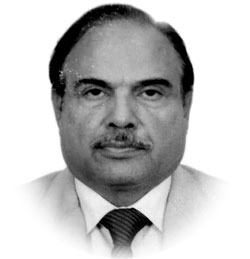ECP should keep an eye on internet voting
WHILE addressing a ceremony to sign the Election Amendment Bill 2021, President Dr Arif Alvi said that, don’t be afraid of a simple electronic voting machine that will help hold a fair election and bring an end to rigging.
People have to trust it, it’s not very technical and is very convenient.A country progresses by adopting new things.
The EVMs would ensure holding of fair elections, which had long been desired in Pakistan, as every election was followed by controversies and claims of rigging that also impacted the credibility of respective governments.
While there is a lot of concerns and controversies over the use of electronic voting machines, a greater transparency is also needed on the EVMs of voting rights for Overseas Pakistanis as per Articles 218 and 226.
This must be kept in view that Overseas Pakistanis can generally be divided into three categories.
The first are the Pakistanis Original Card holders who have surrendered their Pakistani nationality and use the card to facilitate their travel.
The second are the holders of the National Identity Card for Overseas Pakistanis, many of whom are dual nationals.The third are those Pakistanis who are working abroad but retain their green passports.
Lumping them all together for enfranchisement makes little sense.Those in the first category have made a deliberate choice to renounce their Pakistani nationality and become loyal citizens of another state.
This provides them voting rights in their new country of citizenship, and they also pay taxes accordingly.
Making a case for them to have voting rights in Pakistan.whose citizenship they have relinquished.The second category of dual nationals getting voting rights is also problematic.
They have taken an oath of allegiance to another country and, therefore, cannot claim eligibility for voting in their country of birth.
In the past, being opposition leader, Imran Khan had himself opposed the idea of giving dual nationals a right to vote.
It is the third category of people.Pakistani citizens working aboard.who have the strongest claim for enfranchisement.
They have retained their citizenship, pay taxes here and do not have divided loyalties.
Therefore, they have the full right to be given right to vote in the next general elections.
The complications may require a practical and solution-oriented approach.
For instance, many countries like the Middle Eastern countries that host Pakistani workers don’t follow an electoral system of governance and may have reservations if Pakistan asked for preparations for voting .
Similarly, logistical issues regarding transparency in the casting of votes also require detailed deliberations.
It is suggested that the Prime Minister, being the Leader of the House, should consult with the ECP directly.
On the other side, Senator Faysal Vawda is battling a tough situation over dual nationality as his intra court plea has been dismissed by the Islamabad High Court and directed him to appear before the ECP in connection with his dual nationality case.
The petition stated that since Mr Vawda had furnished an affidavit to the Returning Officer declaring at the time of contesting elections that he was not a national of any other country, he had made a false statement on oath, under Article 62-1 of the Constitution.
It is a well known fact that nomination papers are self contained documents, his opponent approached the ECP that Mr Vawda may be disqualified for hiding information pertaining to his dual nationality.
In this background, the honourable Court passed a judgment asking the ECP to conclude the proceedings within one month and advised Vawda to face the inquiry before the ECP.
The political leadership’s ideological orientation, commitment to democracy and the broad policies that it pursues determine the direction and future stability of the State.
This is particularly relevant for Pakistan, which was created as the homeland for Muslims of India in 1947.
In the first scenario it’s my considered opinion that the Governance system in Pakistan has time and again failed and one-party rule seems to be the only solution that can put the nation on track.
The one-party system has been in China since 1948 and it has proved to be successful both for the country and the people.
Pakistan needs to take a step forward and abandon present multi-party democracy for some time and pursue a single-minded agenda for betterment of the country and seven provinces may be created to break the political monopoly of elite pressure families.
In this regard, the 1962 Constitution may be kept in view as some relevant Articles are in favour of stability.
—The writer is former Secretary Election Commission of Pakistan and currently Chairman National Democratic Foundation.










